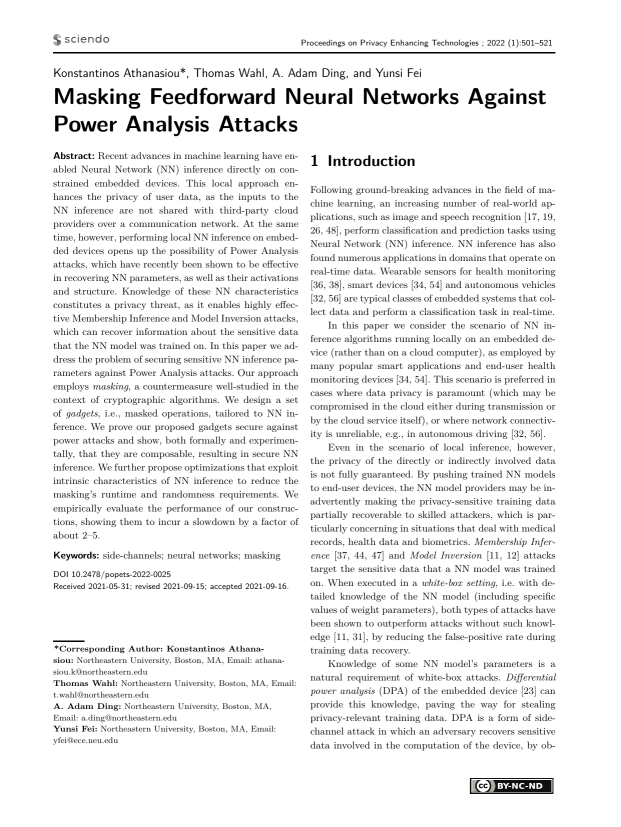Masking Feedforward Neural Networks Against Power Analysis Attacks
Authors: Konstantinos Athanasiou (Northeastern University, Boston, MA), Thomas Wahl (Northeastern University, Boston, MA), A. Adam Ding (Northeastern University, Boston, MA), Yunsi Fei (Northeastern University, Boston, MA)
Volume: 2022
Issue: 1
Pages: 501–521
DOI: https://doi.org/10.2478/popets-2022-0025
Abstract: Recent advances in machine learning have enabled Neural Network (NN) inference directly on constrained embedded devices. This local approach enhances the privacy of user data, as the inputs to the NN inference are not shared with third-party cloud providers over a communication network. At the same time, however, performing local NN inference on embedded devices opens up the possibility of Power Analysis attacks, which have recently been shown to be effective in recovering NN parameters, as well as their activations and structure. Knowledge of these NN characteristics constitutes a privacy threat, as it enables highly effective Membership Inference and Model Inversion attacks, which can recover information about the sensitive data that the NN model was trained on. In this paper we address the problem of securing sensitive NN inference parameters against Power Analysis attacks. Our approach employs masking, a countermeasure well-studied in the context of cryptographic algorithms. We design a set of gadgets, i.e., masked operations, tailored to NN inference. We prove our proposed gadgets secure against power attacks and show, both formally and experimentally, that they are composable, resulting in secure NN inference. We further propose optimizations that exploit intrinsic characteristics of NN inference to reduce the masking’s runtime and randomness requirements. We empirically evaluate the performance of our constructions, showing them to incur a slowdown by a factor of about 2–5.
Keywords: side-channels; neural networks; masking
Copyright in PoPETs articles are held by their authors. This article is published under a Creative Commons Attribution-NonCommercial-NoDerivs 3.0 license.


